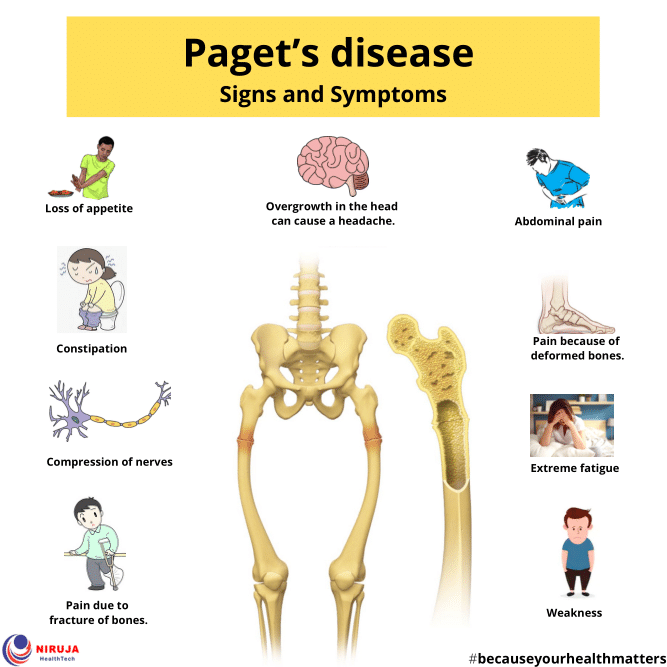Posted: 10/01/2025
Pagets Awareness Day – 11 January 2025
Reading Time: 3 minutes
International Paget’s Awareness Day is on 11 January 2025 and hopes to raise awareness of the disease.
It is the mission for earlier diagnosis and to reduce the pain and anxiety for those living with the condition. For those at risk of Paget’s disease or with a family history, early intervention can control symptoms and reduce progression.
What is Paget’s Disease?
Paget’s disease of bone is a chronic disorder that disrupts the normal cycle of bone renewal, leading to bones that are enlarged, weakened, and deformed. This condition primarily affects older adults and is more common in men than women. While the exact cause remains unknown, genetic factors and certain viral infections are believed to play a role.
Key Facts
- It affects the normal repair and renewal process of bone (remodelling)
- Pain is the most common symptom although the clinical presentation and severity vary widely
- Many people who have Paget’s disease do not have symptoms and will never develop complications
- It is common in the UK, although the frequency and severity of the disease has declined
- Causes: Genetic factors play an important role in predisposing to Paget’s disease and environmental triggers probably play a role, but the identity of these triggers is unclear
Symptoms & complications
The symptoms of Paget’s disease vary widely. Many people who have Paget’s disease do not have symptoms and never develop complications. In many cases, individuals are unaware that they have the condition.

Of those who present with symptoms, pain is the most common. Pain may arise from the affected bone itself, or from the altered biomechanics as the result of limb deformity; for example, a bowed leg alters the way you walk and puts stress on the joints and soft tissues.
The blood flow to active areas of Paget’s disease increases and this can lead to a feeling of warmth over the affected bone. The affected bone may become enlarged and misshapen.
The potential for complications will depend on which bones are affected by Paget’s disease and complications may require medical or surgical intervention
Further possible complications can include:
- Deformity of the bone
- Deafness if the skull has been involved
- Fractures
- Osteoarthritis
- Neurological Complications
- Increased vascularity
- Heart disease
- Osteosarcoma
If left untreated, Paget’s disease can lead to several complications, including:
- Fractures and deformities: Affected bones are more prone to breaking.
- Osteoarthritis: Increased stress on joints can lead to arthritis.
- Heart failure: In rare cases, the increased blood flow to affected bones can strain the heart.
- Bone cancer: Although rare, there is a slight increase in the risk of developing bone cancer.
Diagnosis and treatment – key facts
- Most people are over 50 when they are diagnosed with Paget’s disease
- The condition may be identified by an x-ray, blood test or radionuclide bone scan
- A radionuclide bone scan is the best way to determine the distribution and extent of Paget’s disease
- Paget’s disease does not always cause any symptoms and not everyone needs treatment, but if there is pain which is thought to be caused by Paget’s disease, treatment with bisphosphonates should normally be given
- A detailed assessment is key, since there are many potential causes of pain in people who have Paget’s disease
- The current first-line treatment for pain caused by Paget’s disease is zoledronic acid, since it is the one most likely to relieve pain from active Paget’s disease, but other bisphosphonates can also be effective.
- If pain is present, usually the benefits of treatment outweigh the risk of any potential side effects.
Treatment
While there is no cure for Paget’s disease, treatments can help manage symptoms and prevent complications:
- Medications: Bisphosphonates are commonly prescribed to regulate bone remodelling. Pain relief may be achieved with analgesics like paracetamol.
- Supplements: Calcium and vitamin D supplements can help maintain bone health.
- Physical therapy: To improve movement and reduce pain.
- Surgery: In severe cases, orthopaedic surgery may be necessary to correct deformities or treat fractures.
If you would like to learn more about the Paget’s Awareness Day or how you can help, you can visit www.paget.org.uk for more information.
FRIENDLY, EFFICIENT LEGAL ADVICE
We’re ready to chat when you are
Drop us an email or give us a call for a no obligation chat to see if we can help.